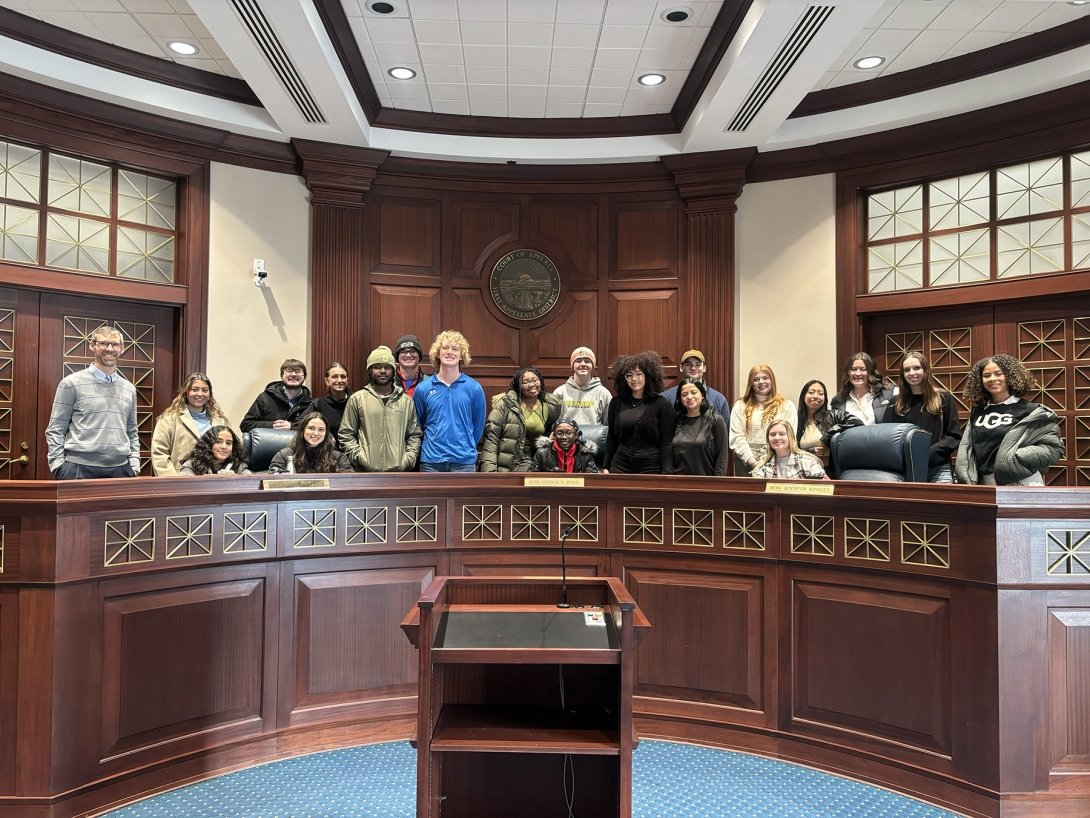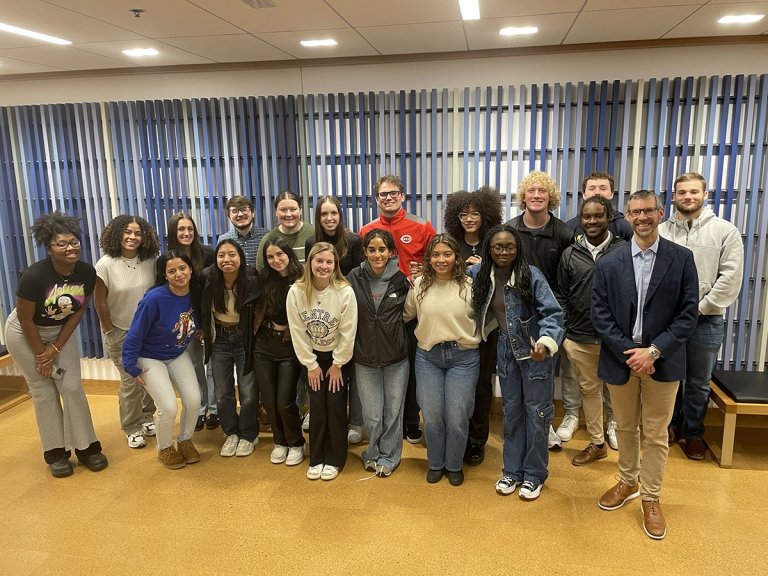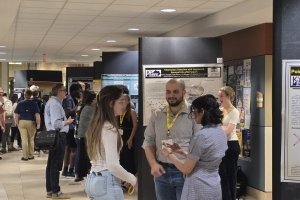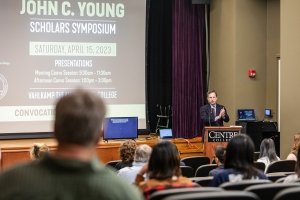Trial run: Centre students gain up-close perspective of court system

Students interested in pre-law took a glimpse behind the legal system curtain thanks to Ohio First District Court of Appeals Judge Pierre Bergeron ’96.
It was Bergeron’s first CentreTerm course on “Criminal Justice Reform, Judges, and Popular Media” that gave students a one-of-a-kind look at the court system.
Centre students heard from prosecutors, defense lawyers, policy makers, law professors, trial judges, federal and state judges and even got to sit in on a murder trial — real-world opportunities that Bergeron, the Lively Professor of Government and Law at Centre, hoped would give students a feel for a career in law.
“In this class, we’ve taken theory and looked at it through a very practical lens,” Bergeron said. “We were really digging in, trying to wrestle with the difficultly and challenges of problems (in the system), because I think that’s a great way to think about potential solutions.”
One example the class looked at was sentencing: Students first reviewed sentencing data, disparity and the process of sentencing, then spoke with a federal prosecutor on how they make recommendations to the court. The class also heard from a federal judge who spoke on sentencing and what they struggle with.

“I would say my perceptions have changed,” Leah DeLeon said.
A sophomore politics major from Boston, DeLeon noted her interest in law school was cemented after taking the course.
“We talked to a defense attorney who had been previously convicted of a crime. I realized that a lot of times it’s easy to lose the human aspect of the system and that there’s always a human on the other side of any report on TV or what you’re reading.”
Students examined traditional media, like TV and newspaper outlets, and popular media sources, like podcasts and The John Oliver Show on HBO. After seeing how media portrays different challenges in the court, the class combined that information with what they saw in person: The murder trial brought a potential eyewitness to the stand, a topic discussed in class— just how reliable can eyewitness identification be?
Trace Bowman, a student in the class of 2026 and native of Stanford, Kentucky, said that the course opened his eyes to the inequalities and complexities of the legal system.
“It was an intensive class, but I enjoyed it — it encouraged me to go to law school and hopefully help make change.”
For their final project, students were tasked with creating proposals to adjust a specific part of the justice system. From traffic cops to drug offenses, students combined their real-world experiences with what they learned and witnessed in class to create their arguments.
It was significant for students to see how small changes could have “wide-ranging ramifications” to different parts of the legal system, and Bergeron said he was encouraged to see the students’ enthusiasm tackling those challenges.
“Because, hopefully, if students are interested in going to law school, I want them to understand what law school and the legal profession are really like,” Bergeron said. “And so that's part of what I was trying to show them, in addition to why our system operates the way it does.”






